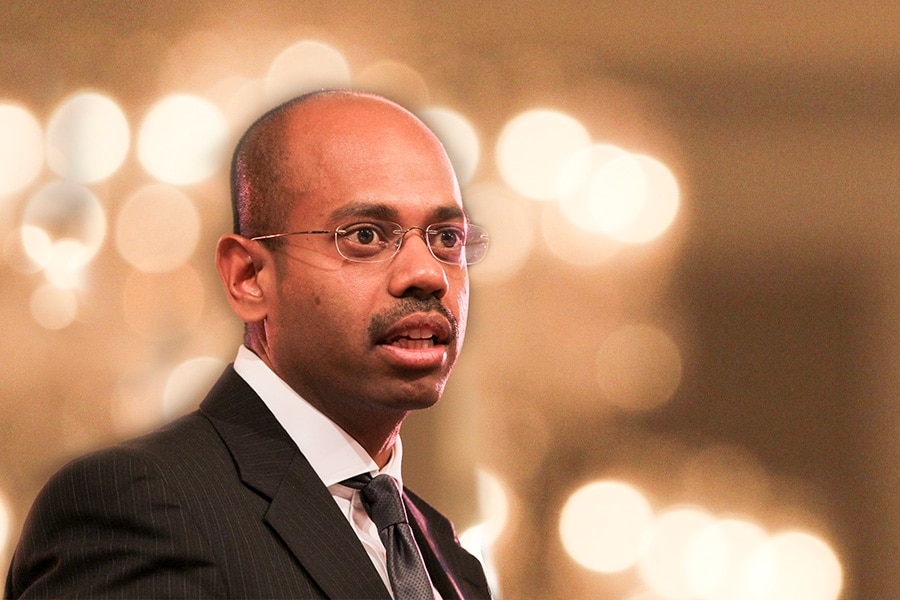Aditya Ghosh checks in at OYO
The airline veteran will be in charge of OYO's India and Nepal operations


 Former IndiGo President Aditya Ghosh, who grew the airline's revenue eight fold in his tenure, has joined OYO Hotels as CEO
Former IndiGo President Aditya Ghosh, who grew the airline's revenue eight fold in his tenure, has joined OYO Hotels as CEO
Photo: Manoj PatilHospitality startup OYO Hotels has appointed Aditya Ghosh, the former president of India’s largest airlines, IndiGo, as the chief executive officer of its South Asia business. Ghosh would be in charge of India and Nepal.
“As we grow our business, we feel it is essential to continue to invest in building one of the most influential leadership teams and bringing in professionals with an entrepreneurial mindset and from diverse backgrounds, that can help lead the next wave of growth at OYO Hotels. With Aditya taking on this mantle for one of our home markets, India and the broader South Asia region, we are confident that he will be able to help OYO Hotels set new benchmarks in the hospitality industry, and nurture a high performing workforce,” Ritesh Agarwal, founder and group CEO at OYO Hotels and Homes, said in a statement.
Indeed, Ghosh has played a stellar role in steering IndiGo ahead of peers and competition, who have often struggled with profitability while scaling up.
Ghosh was the operational head of IndiGo for almost a decade and there was no visible sign of him leaving the company anytime soon. But on April 27, he announced his resignation as president and whole-time director of IndiGo. A lawyer by profession,Ghosh took over the leadership reins at IndiGo as president in August 2009, replacing aviation veteran Bruce Ashby. He was the first outsider with a non-aviation background to lead an Indian airline. Ghosh has a bachelor's degree in law and history from the Delhi University.
Under Ghosh’s stewardship, IndiGo grew from 18 aircraft to over 160, operating more than a 1,000 daily flights. In the same period, the airline’s revenue increased by eight fold. Ghosh provided IndiGo with stability and continuity in terms of leadership, whereas other Indian airlines have seen a constant churn in their top management. For example, Jet Airways has had seven CEOs in the last five years.
He stayed true to the low-cost model by focusing on increasing frequency between key routes rather than constantly adding new routes.
His remuneration in fiscal 2016-17 was Rs 6.48 crore.
Ghosh's achievements at IndiGo possibly makes him an ideal candidate to steer OYO, which posted losses of Rs 363.7 crore on revenue of Rs 125 crore.
The company, which last raised $800 million in a fresh funding round led by the SoftBank Vision Fund in September, is India’s third most valuable startup at $5 billion, after Paytm and Ola. OYO has so far raised approximately $1.3 billion from SoftBank, Sequoia Capital, Lightspeed Venture Partners and GreenOaks Capital, Huazhu Hotel Group and Sunil Munjal’s Hero Enterprise.
OYO is also one of the fistful of Indian consumer internet startups with massive overseas ambitions, along with the likes of Zomato and Practo.
OYO counts India and China as its home markets. The company plans to raise about $600 million to expand its China footprint, the company had said during its fundraise in September. Apart from India and China, OYO operates in Malaysia, Nepal, UK, UAE and Indonesia. Overall, it has a presence in more than 500 cities and operates 3.3 lakh rooms in 12,000 hotels.
Apart from the low-cost economy rooms that OYO is famous for, it now has a variety of options such as Townhouse (premium-economy), Home (homestays), SilverKey (executive apartments), Oyo Living (long-term housing rental), Capital O (corporate living spaces), Palette Resorts (upper-end leisure resorts) and Weddingz.in (wedding banquets).
First Published: Nov 15, 2018, 18:15
Subscribe Now